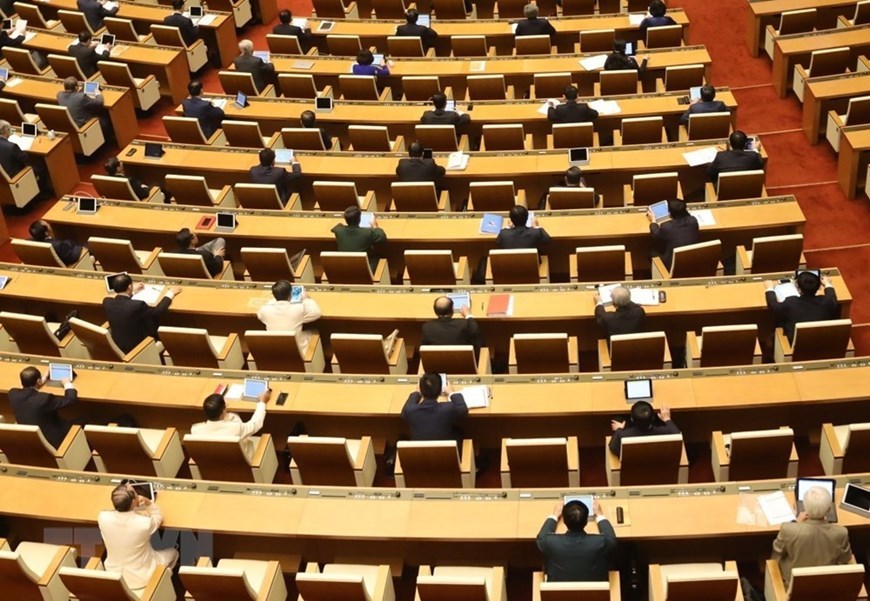 |
|
|
The resolution comprises six articles, stipulating specific financial-budgetary mechanisms for Ha Noi.
The document shall come into effect from August 15, 2020 and last in five years.
Under the resolution, the Ha Noi People’s Council is authorized to collect some types of fees which are not on the list of fees and charges issued along with the Law on Fees and Charges, and adjust the fees and charges on the list except for those belonging to the central budget.
The city will get 100% of additional revenues from fees and charges in favor of socio-economic development, science, technology, education, and healthcare.
Under the resolution, Ha Noi is permitted to spend 50% of land use fees when selling public property associated with assets on land in socio-economic infrastructure investment and keep revenues from equitization and state capital withdrawal from state owned enterprises under management by the People’s Committee.
The ceiling of debts will be no more than 90% of revenue in the principle that the capital city must ensure its solvency.
The city will be able to use the financial reserve fund to invest in infrastructure projects in the medium-term public investment plan. It must ensure the recovery of the money within 36 months.
It will also be permitted to use the local budget’s fund for regular spending for the upgrade and building of essential items in existing facilities of administrative public non-production agencies and agencies under political-social organizations.
The city could use its budget to support other localities in the country.
Earlier, in 2017, the NA adopted a resolution to pilot special mechanisms and policies for the development of Ho Chi Minh City to boost its growth. Dtinews